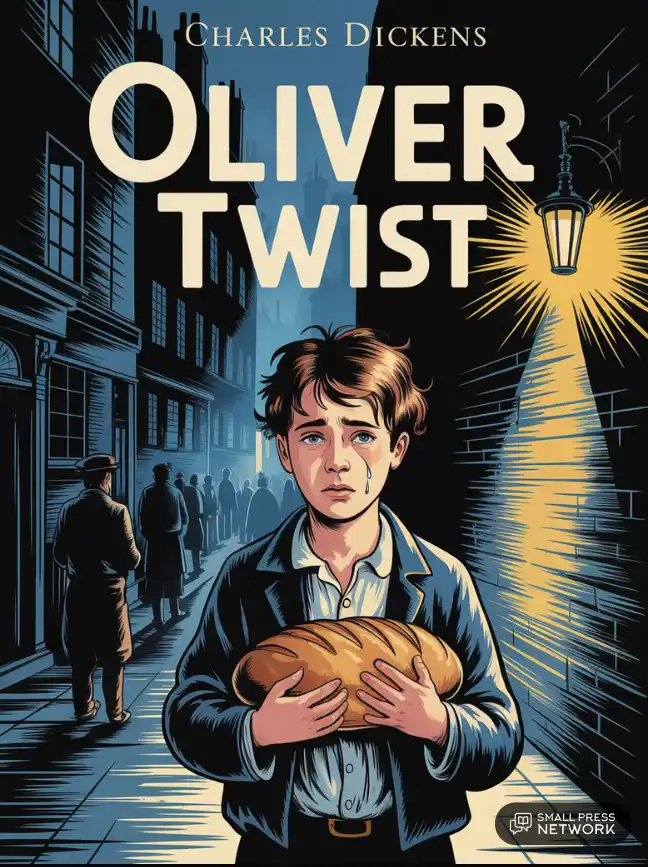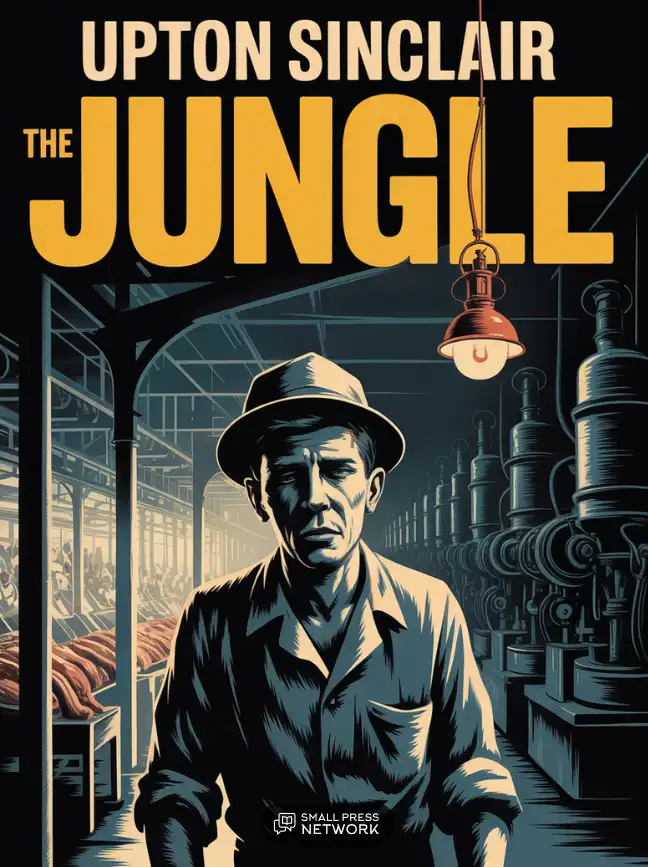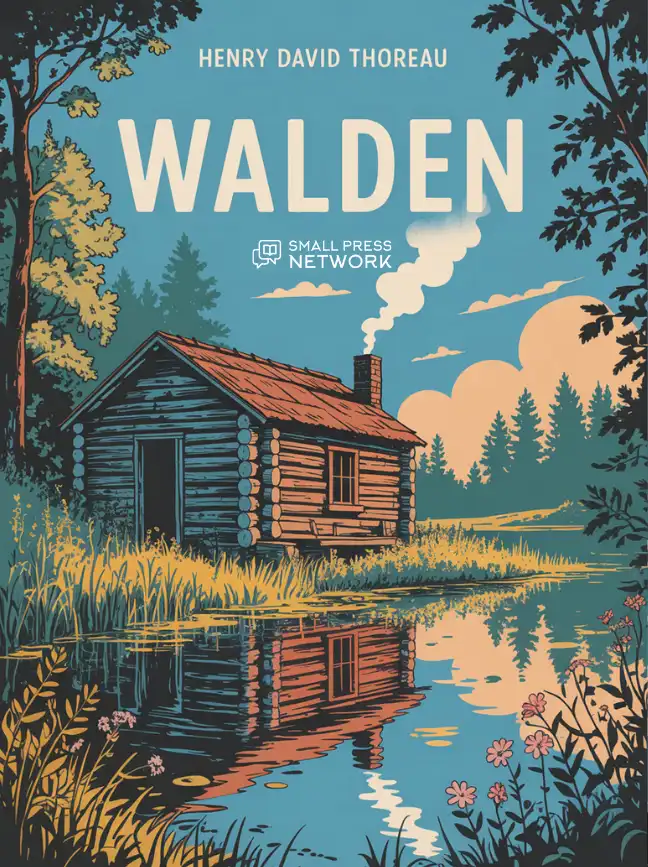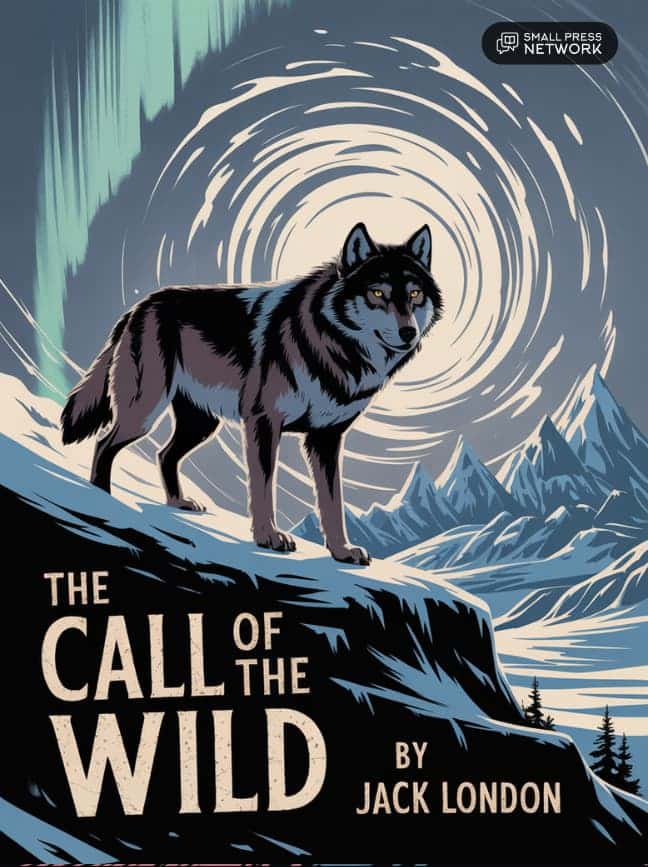.
.
When Oliver awoke in the morning, he was a good deal surprised to find that a new pair of shoes, with strong thick soles, had been placed at his bedside; and that his old shoes had been removed. At first, he was pleased with the discovery: hoping that it might be the forerunner of his release; but such thoughts were quickly dispelled, on his sitting down to breakfast along with the Jew, who told him, in a tone and manner which increased his alarm, that he was to be taken to the residence of Bill Sikes that night.
“To—to—stop there, sir?” asked Oliver, anxiously.
“No, no, my dear. Not to stop there,” replied the Jew. “We shouldn’t like to lose you. Don’t be afraid, Oliver, you shall come back to us again. Ha! ha! ha! We won’t be so cruel as to send you away, my dear. Oh no, no!”
The old man, who was stooping over the fire toasting a piece of bread, looked round as he bantered Oliver thus; and chuckled as if to show that he knew he would still be very glad to get away if he could.
“I suppose,” said the Jew, fixing his eyes on Oliver, “you want to know what you’re going to Bill’s for—-eh, my dear?”
Oliver coloured, involuntarily, to find that the old thief had been reading his thoughts; but boldly said, Yes, he did want to know.
“Why, do you think?” inquired Fagin, parrying the question.
“Indeed I don’t know, sir,” replied Oliver.
“Bah!” said the Jew, turning away with a disappointed countenance from a close perusal of the boy’s face. “Wait till Bill tells you, then.”
The Jew seemed much vexed by Oliver’s not expressing any greater curiosity on the subject; but the truth is, that, although Oliver felt very anxious, he was too much confused by the earnest cunning of Fagin’s looks, and his own speculations, to make any further inquiries just then. He had no other opportunity: for the Jew remained very surly and silent till night: when he prepared to go abroad.
“You may burn a candle,” said the Jew, putting one upon the table.
“And here’s a book for you to read, till they come to fetch you. Good-
night!”
“Good-night!” replied Oliver, softly.
The Jew walked to the door: looking over his shoulder at the boy as he went. Suddenly stopping, he called him by his name.
Oliver looked up; the Jew, pointing to the candle, motioned him to light it. He did so; and, as he placed the candlestick upon the table, saw that the Jew was gazing fixedly at him, with lowering and contracted brows, from the dark end of the room.
“Take heed, Oliver! take heed!” said the old man, shaking his right hand before him in a warning manner. “He’s a rough man, and thinks nothing of blood when his own is up. Whatever falls out, say nothing; and do what he bids you. Mind!” Placing a strong emphasis on the last word, he suffered his features gradually to resolve themselves into a ghastly grin, and, nodding his head, left the room.
Oliver leaned his head upon his hand when the old man disappeared, and pondered, with a trembling heart, on the words he had just heard. The more he thought of the Jew’s admonition, the more he was at a loss to divine its real purpose and meaning.
He could think of no bad object to be attained by sending him to Sikes, which would not be equally well answered by his remaining with Fagin; and after meditating for a long time, concluded that he had been selected to perform some ordinary menial offices for the housebreaker, until another boy, better suited for his purpose could be engaged. He was too well accustomed to suffering, and had suffered too much where he was, to bewail the prospect of change
very severely. He remained lost in thought for some minutes; and then, with a heavy sigh, snuffed the candle, and, taking up the book which the Jew had left with him, began to read.
He turned over the leaves. Carelessly at first; but, lighting on a passage which attracted his attention, he soon became intent upon the volume. It was a history of the lives and trials of great criminals; and the pages were soiled and thumbed with use. Here, he read of dreadful crimes that made the blood run cold; of secret murders that had been committed by the lonely wayside; of bodies hidden from the eye of man in deep pits and wells: which would not keep them down, deep as they were, but had yielded them up at last, after many years, and so maddened the murderers with the sight, that in their horror they had confessed their guilt, and yelled for the gibbet to end their agony. Here, too, he read of men who, lying in their beds at dead of night, had been tempted (so they said) and led on, by their own bad thoughts, to such dreadful bloodshed as it made the flesh creep, and the limbs quail, to think of. The terrible descriptions were so real and vivid, that the sallow pages seemed to turn red with gore; and the words upon them, to be sounded in his ears, as if they were whispered, in hollow murmurs, by the spirits of the dead.
In a paroxysm of fear, the boy closed the book, and thrust it from him. Then, falling upon his knees, he prayed Heaven to spare him from such deeds; and rather to will that he should die at once, than be reserved for crimes, so fearful and appalling. By degrees, he grew more calm, and besought, in a low and broken voice, that he might be rescued from his present dangers; and that if any aid were to be raised up for a poor outcast boy who had never known the love of friends or kindred, it might come to him now, when, desolate and deserted, he stood alone in the midst of wickedness and guilt.
He had concluded his prayer, but still remained with his head buried in his hands, when a rustling noise aroused him.
“What’s that!” he cried, starting up, and catching sight of a figure standing by the door. “Who’s there?”
“Me. Only me,” replied a tremulous voice.
Oliver raised the candle above his head: and looked towards the door. It was Nancy.
“Put down the light,” said the girl, turning away her head. “It hurts my eyes.”
Oliver saw that she was very pale, and gently inquired if she were ill. The girl threw herself into a chair, with her back towards him: and wrung her hands; but made no reply.
“God forgive me!” she cried after a while, “I never thought of this.”
“Has anything happened?” asked Oliver. “Can I help you? I will if I can. I will, indeed.”
She rocked herself to and fro; caught her throat; and, uttering a
gurgling sound, gasped for breath.
“Nancy!” cried Oliver, “What is it?”
The girl beat her hands upon her knees, and her feet upon the ground; and, suddenly stopping, drew her shawl close round her: and shivered with cold.
Oliver stirred the fire. Drawing her chair close to it, she sat there, for a little time, without speaking; but at length she raised her head, and looked round.
“I don’t know what comes over me sometimes,” said she, affecting to busy herself in arranging her dress; “it’s this damp dirty room, I think. Now, Nolly, dear, are you ready?”
“Am I to go with you?” asked Oliver.
“Yes. I have come from Bill,” replied the girl. “You are to go with
me.”
“What for?” asked Oliver, recoiling.
“What for?” echoed the girl, raising her eyes, and averting them again, the moment they encountered the boy’s face. “Oh! For no harm.”
“I don’t believe it,” said Oliver: who had watched her closely.
“Have it your own way,” rejoined the girl, affecting to laugh. “For no good, then.”
Oliver could see that he had some power over the girl’s better feelings, and, for an instant, thought of appealing to her compassion for his helpless state. But, then, the thought darted across his mind that it was barely eleven o’clock; and that many people were still in the streets: of whom surely some might be found to give credence to his tale. As the reflection occured to him, he stepped forward: and said, somewhat hastily, that he was ready.
Neither his brief consideration, nor its purport, was lost on his companion. She eyed him narrowly, while he spoke; and cast upon him a look of intelligence which sufficiently showed that she guessed what had been passing in his thoughts.
“Hush!” said the girl, stooping over him, and pointing to the door as she looked cautiously round. “You can’t help yourself. I have tried hard for you, but all to no purpose. You are hedged round and round.
If ever you are to get loose from here, this is not the time.”
Struck by the energy of her manner, Oliver looked up in her face with great surprise. She seemed to speak the truth; her countenance was white and agitated; and she trembled with very earnestness.
“I have saved you from being ill-used once, and I will again, and I do now,” continued the girl aloud; “for those who would have fetched you, if I had not, would have been far more rough than me. I have promised for your being quiet and silent; if you are not, you will only do harm to yourself and me too, and perhaps be my death. See here! I have borne all this for you already, as true as God sees me show it.”
She pointed, hastily, to some livid bruises on her neck and arms; and continued, with great rapidity:
“Remember this! And don’t let me suffer more for you, just now. If I could help you, I would; but I have not the power. They don’t mean to harm you; whatever they make you do, is no fault of yours. Hush!
Every word from you is a blow for me. Give me your hand. Make haste! Your hand!”
She caught the hand which Oliver instinctively placed in hers, and, blowing out the light, drew him after her up the stairs. The door was opened, quickly, by some one shrouded in the darkness, and was as quickly closed, when they had passed out. A hackney-cabriolet was in waiting; with the same vehemence which she had exhibited in addressing Oliver, the girl pulled him in with her, and drew the curtains close. The driver wanted no directions, but lashed his horse into full speed, without the delay of an instant.
The girl still held Oliver fast by the hand, and continued to pour into his ear, the warnings and assurances she had already imparted.
All was so quick and hurried, that he had scarcely time to recollect where he was, or how he came there, when the carriage stopped at
the house to which the Jew’s steps had been directed on the previous evening.
For one brief moment, Oliver cast a hurried glance along the empty street, and a cry for help hung upon his lips. But the girl’s voice was in his ear, beseeching him in such tones of agony to remember her, that he had not the heart to utter it. While he hesitated, the opportunity was gone; he was already in the house, and the door was shut.
“This way,” said the girl, releasing her hold for the first time. “Bill!”
“Hallo!” replied Sikes: appearing at the head of the stairs, with a candle. “Oh! That’s the time of day. Come on!”
This was a very strong expression of approbation, an uncommonly hearty welcome, from a person of Mr. Sikes’ temperament. Nancy, appearing much gratified thereby, saluted him cordially.
“Bull’s-eye’s gone home with Tom,” observed Sikes, as he lighted
them up. “He’d have been in the way.”
“That’s right,” rejoined Nancy.
“So you’ve got the kid,” said Sikes when they had all reached the
room: closing the door as he spoke.
“Yes, here he is,” replied Nancy.
“Did he come quiet?” inquired Sikes.
“Like a lamb,” rejoined Nancy.
“I’m glad to hear it,” said Sikes, looking grimly at Oliver; “for the sake of his young carcase: as would otherways have suffered for it.
Come here, young ’un; and let me read you a lectur’, which is as well got over at once.”
Thus addressing his new pupil, Mr. Sikes pulled off Oliver’s cap and threw it into a corner; and then, taking him by the shoulder, sat himself down by the table, and stood the boy in front of him.
“Now, first: do you know wot this is?” inquired Sikes, taking up a
pocket-pistol which lay on the table.
Oliver replied in the affirmative.
“Well, then, look here,” continued Sikes. “This is powder; that ’ere’s a bullet; and this is a little bit of a old hat for waddin’.”
Oliver murmured his comprehension of the different bodies referred to; and Mr. Sikes proceeded to load the pistol, with great nicety and deliberation.
“Now it’s loaded,” said Mr. Sikes, when he had finished.
“Yes, I see it is, sir,” replied Oliver.
“Well,” said the robber, grasping Oliver’s wrist, and putting the barrel so close to his temple that they touched; at which moment the boy could not repress a start; “if you speak a word when you’re out o’doors with me, except when I speak to you, that loading will be in your head without notice. So, if you do make up your mind to speak without leave, say your prayers first.”
Having bestowed a scowl upon the object of this warning, to increase its effect, Mr. Sikes continued.
“As near as I know, there isn’t anybody as would be asking very partickler arter you, if you was disposed of; so I needn’t take this devil-and-all of trouble to explain matters to you, if it warn’t for your own good. D’ye hear me?”
“The short and the long of what you mean,” said Nancy: speaking very emphatically, and slightly frowning at Oliver as if to bespeak his serious attention to her words: “is, that if you’re crossed by him in this job you have on hand, you’ll prevent his ever telling tales afterwards, by shooting him through the head, and will take your chance of swinging for it, as you do for a great many other things in the way of business, every month of your life.”
“That’s it!” observed Mr. Sikes, approvingly; “women can always put things in fewest words.—Except when it’s blowing up; and then they lengthens it out. And now that he’s thoroughly up to it, let’s have some supper, and get a snooze before starting.”
In pursuance of this request, Nancy quickly laid the cloth; disappearing for a few minutes, she presently returned with a pot of porter and a dish of sheep’s heads: which gave occasion to several pleasant witticisms on the part of Mr. Sikes, founded upon the singular coincidence of “jemmies” being a can name, common to them, and also to an ingenious implement much used in his profession. Indeed, the worthy gentleman, stimulated perhaps by the immediate prospect of being on active service, was in great spirits and good humour; in proof whereof, it may be here remarked, that he humourously drank all the beer at a draught, and did not utter, on a rough calculation, more than four-score oaths during the whole progress of the meal.
Supper being ended—it may be easily conceived that Oliver had no great appetite for it—Mr. Sikes disposed of a couple of glasses of spirits and water, and threw himself on the bed; ordering Nancy, with many imprecations in case of failure, to call him at five precisely.
Oliver stretched himself in his clothes, by command of the same authority, on a mattress upon the floor; and the girl, mending the fire, sat before it, in readiness to rouse them at the appointed time.
For a long time Oliver lay awake, thinking it not impossible that Nancy might seek that opportunity of whispering some further advice; but the girl sat brooding over the fire, without moving, save now and then to trim the light. Weary with watching and anxiety, he at length fell asleep.
When he awoke, the table was covered with tea-things, and Sikes was thrusting various articles into the pockets of his great-coat, which hung over the back of a chair. Nancy was busily engaged in preparing breakfast. It was not yet daylight; for the candle was still burning, and it was quite dark outside. A sharp rain, too, was beating against the window-panes; and the sky looked black and cloudy.
“Now, then!” growled Sikes, as Oliver started up; “half-past five!
Look sharp, or you’ll get no breakfast; for it’s late as it is.”
Oliver was not long in making his toilet; having taken some breakfast, he replied to a surly inquiry from Sikes, by saying that he was quite ready.
Nancy, scarcely looking at the boy, threw him a handkerchief to tie round his throat; Sikes gave him a large rough cape to button over his shoulders. Thus attired, he gave his hand to the robber, who, merely pausing to show him with a menacing gesture that he had that same pistol in a side-pocket of his great-coat, clasped it firmly in his, and, exchanging a farewell with Nancy, led him away.
Oliver turned, for an instant, when they reached the door, in the hope of meeting a look from the girl. But she had resumed her old seat in front of the fire, and sat, perfectly motionless before it.





